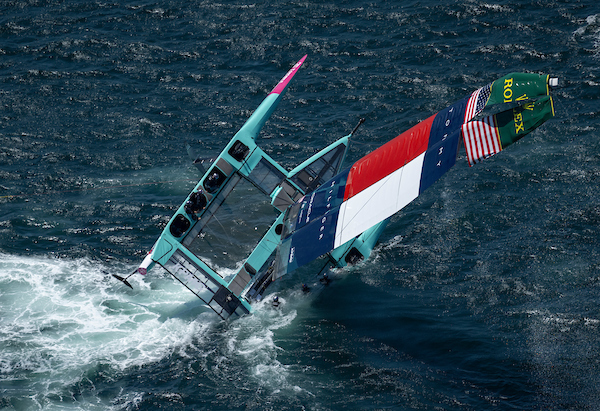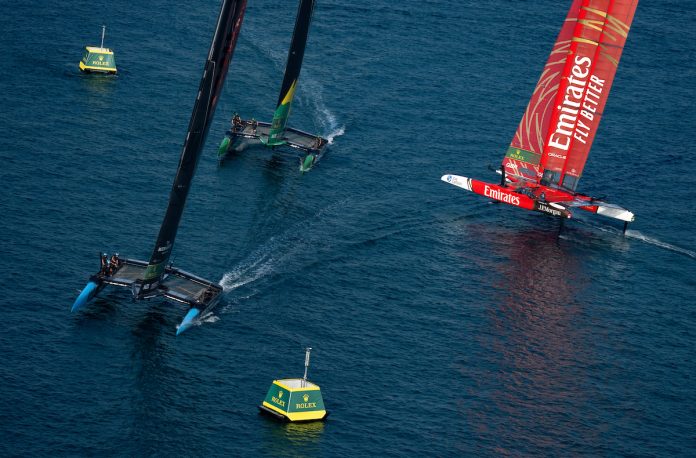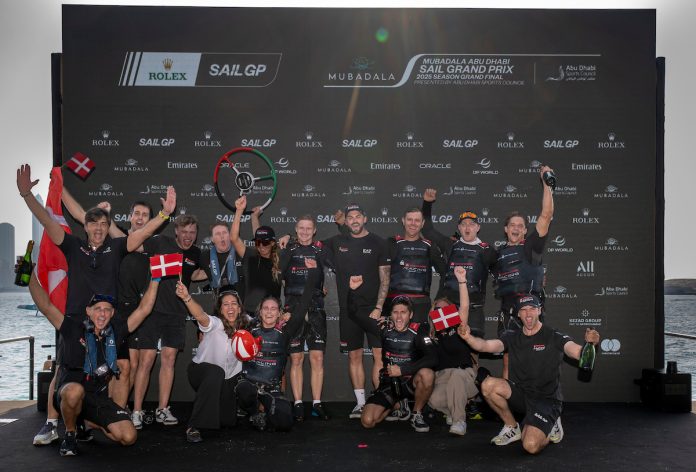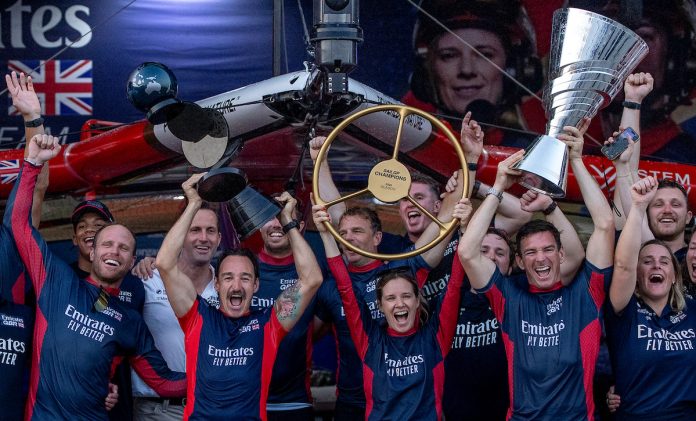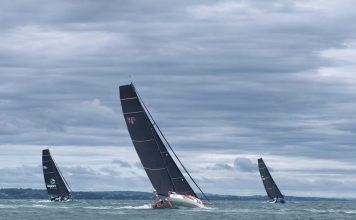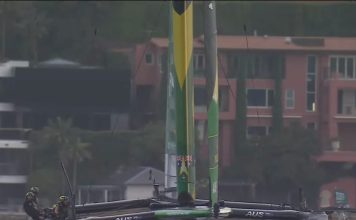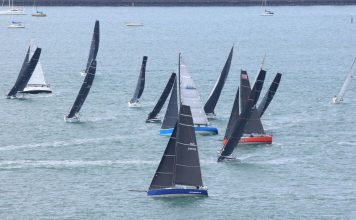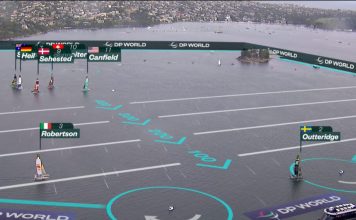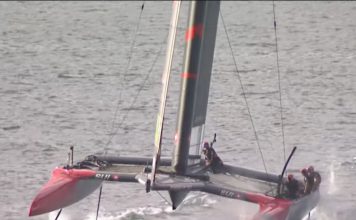Few sailing teams have experienced a rollercoaster quite like the U.S. SailGP Team in recent seasons. After joining SailGP mid-way through last season under new ownership, led by CEO and strategist Mike Buckley alongside investors Ryan and Margaret McKillen, the American team has experienced a journey described candidly by Buckley as “up and down.”
As Los Angeles prepares to host the Rolex Sail Grand Prix on March 15-16, Buckley spoke openly about his expectations, experiences, and the challenges of building a consistently competitive team within one of sailing’s fastest, most demanding series.
Navigating through turbulent waters

Entering SailGP halfway into season 4, the U.S. team swiftly tasted success with an impressive podium finish in Abu Dhabi. Calm seas and light winds suited the team’s fresh but talented roster. However, heavier weather conditions in Bermuda and Halifax proved more problematic, and things dramatically unravelled when a devastating capsize occurred during practice.
Reflecting on the capsize, Buckley openly shared the severity of the incident:
“We probably all almost died, but you pick yourself up. We all know the risks when we leave the dock. You can either take a step back or step forward.”
The accident was undeniably a harsh wake-up call, damaging the team’s F50 wing and forcing their withdrawal from the event. Yet, it became a catalyst for change.
Shifting gears and raising standards
Determined to improve, the team adopted a more professional and structured approach post-Bermuda. Central to this shift was the hiring of coach Evan Aras, renowned for his meticulous, data-driven training techniques.
Buckley highlighted this transformation:
“We got a little more serious and made some necessary changes. Evan’s data-driven and process-orientated methods have made us smarter, more disciplined, and ultimately better sailors.”
Yet, despite these adjustments, Buckley remains pragmatic, openly acknowledging the scale of the challenge ahead.
Realistic expectations
Managing a SailGP team’s expectations requires more than just sailing expertise; it demands strategic long-term thinking. Buckley has embraced this mindset, ensuring that both team members and investors understand the patience required to achieve sustainable success.
Drawing comparisons to professional sports teams, he noted the misconception around instant success in competitive environments:
“You’ve seen how long it takes to turn an NBA or NFL team around. There’s this illusion that this U.S. team was at the top of the leaderboard before we showed up, which isn’t true. It’s going to take time.”
Buckley had set realistic goals from the outset, explaining to investors it might take “three full seasons before we have the opportunity to compete for a championship.” Even this timeframe, he admits, is somewhat optimistic given the fierce competition within SailGP.

Dealing with inconsistency
The 2025 season mirrors the previous season’s unpredictability. The U.S. team again demonstrated promise, securing third place in the gentle breezes of Dubai. However, challenges re-emerged in Auckland and Sydney, where another pre-race capsize prevented the team from competing in Australia altogether.
Yet Buckley remains resolutely unfazed by temporary setbacks, advocating for a long-term, process-driven outlook:
“I haven’t put pressure on anybody for immediate results. I’m realistic—our focus is on learning, preparation, and incremental improvement.”
He highlights the importance of consistent mid-pack finishes as a realistic stepping stone, punctuated by occasional podium appearances, recognising the variability inherent in a series as demanding as SailGP.
Striving for genuine confidence
A key component of Buckley’s strategy revolves around preparation. The team is acutely aware of the correlation between thorough preparation and sustained confidence on the water:
“True confidence comes from true preparation, and we’re scrapping to achieve that. Right now, we don’t have as many days on the water as we’d like. We have two podiums in a year—that’s promising, but we want consistency.”
Buckley’s philosophy centres on continuous improvement, incremental gains, and unwavering commitment. The immediate goal isn’t perfection but rather establishing a solid foundation from which genuine success can emerge.
Home advantage in Los Angeles
The upcoming Rolex Los Angeles Sail Grand Prix presents a pivotal opportunity for the U.S. team to showcase their progress and potential. Racing on home waters adds both motivation and expectation, providing an ideal stage to display their incremental gains and newfound confidence.
As the team gears up for Los Angeles, Buckley remains pragmatic yet ambitious, understanding that the true test of his team’s progress will be evident when the fleet crosses the finish line:
“The beautiful thing about sport is that results don’t lie. Where we end up at the end of the season, we’ll know whether we’re right or wrong, and we’ll go from there.”
Charting the course forward
Ultimately, Mike Buckley’s leadership style embodies patience, pragmatism, and precision—qualities critical for building a competitive SailGP team. While results remain inconsistent, the clarity of vision and depth of commitment suggest that brighter days lie ahead for the U.S. SailGP Team.
For now, as Buckley wisely observes, the immediate task is straightforward:
“Put in the work. If you’re working, the results will come.”
Los Angeles will be the next chapter in a compelling story of resilience, growth, and the quest for sustained excellence in sailing’s fastest competition.









